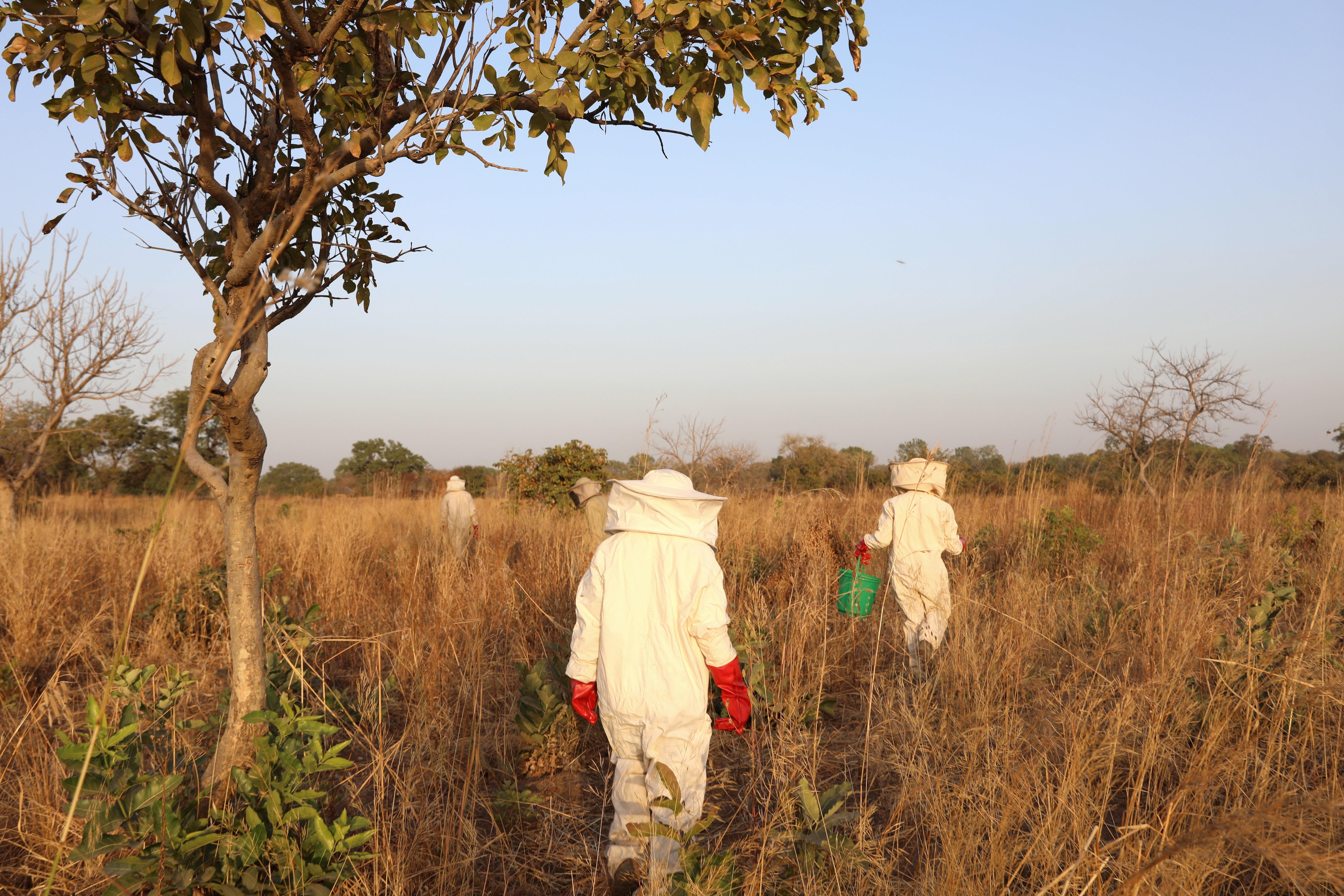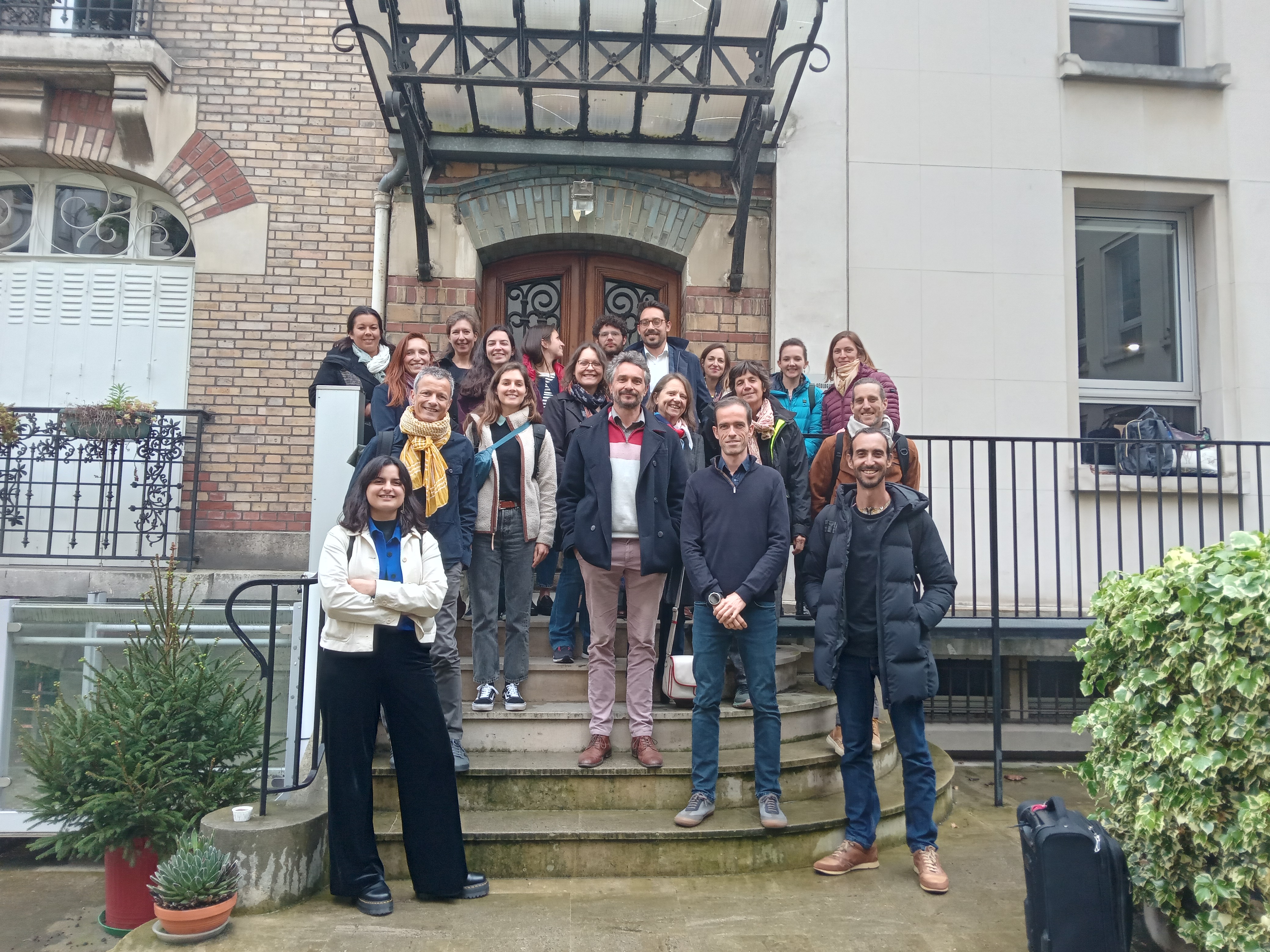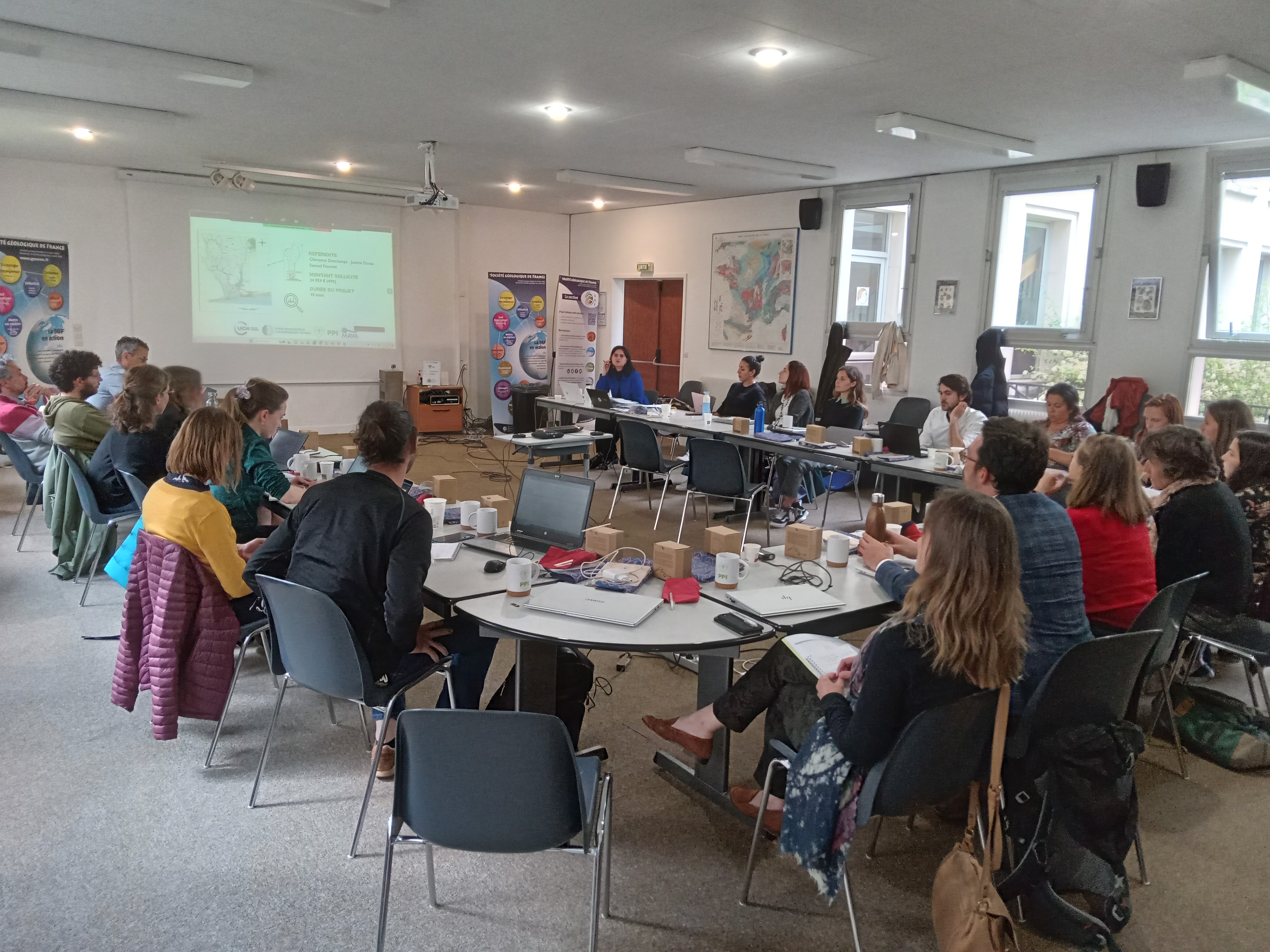
25 new projects selected in Central and West Africa!
Published on 19 June 2023Nearly 70 experts, members and partners of the French Committee of IUCN and the PPI met in Paris on 15 and 16 May to evaluate project proposals from new PPI partners in Central and West Africa. In all, 25 new initiatives in 15 countries were selected for a total of 830,000 euros.
Since 2021, the Programme de Petites Initiatives has entered its 6th phase, which aims, until 2025, to support around fifty global biodiversity conservation projects led by civil society organisations (CSOs) in Central and West Africa.
Financed by the French Global Environment Facility (FFEM), the MAVA Foundation, the EDF Group Foundation and the Hans Wilsdorf Foundation, this new phase of the PPI aims to strengthen the influence and contribution of civil society in sub-Saharan African countries to conserving biodiversity and combating climate change through nature-based solutions. The projects supported also help to improve the living conditions of local populations by funding concrete projects on the ground.
In June 2022, a call for projects aimed at new organisations that had never received PPI funding was launched in 26 Central and West African countries. On closing, 1,205 applications had been received – a first in the history of the PPI, which received an average of around 600 applications! 33 projects were then shortlisted and the associations were invited to submit a full application by 15 March 2023. Each CSO benefited from the support of a PPI “capacity-building” coordinator to help them put together complete applications.
Prior to the selection committee, each application was studied by 3 independent assessors who were able to evaluate the quality of the projects submitted according to various criteria (challenges and threats to biodiversity, relevance and coherence of the projects, ability of the organisation to take action, etc.).
Organised in a hybrid format, face-to-face in Paris and remotely, the selection committee was held on 15 and 16 May 2023, and brought together nearly 70 members from French and international organisations, donors, independent experts and local African organisations, historical partners of the PPI who were not eligible for this call for projects. During the committee meeting, each project was presented and discussed by the evaluators and the other members. As well as selecting the projects, the discussions also provided an opportunity to share expertise and suggestions for improvement for each proposal.
At the end of the two days of debates, 25 projects were selected for a total of €830,000, i.e. an average of around €33,000 per project.
Through these grants, which last between 12 and 20 months, the organisations will have the common objective of implementing local biodiversity conservation and local development projects through concrete actions on the ground in 15 countries.
The projects selected address a wide range of issues identified in Central and West Africa, including the conservation of marine turtles, manatees and elephants, the restoration of mangroves, the development of beekeeping as an alternative to human-wildlife conflicts, and support for the creation of community protected areas.
Innovation, research/action and collaboration with local communities have been at the heart of the selection process. Examples of this are the projects run by the organisations JEVEV and NADA.
In Benin, the project run by the JEVEV association aims to contribute to the conservation of the last remaining populations of the African manatee in the Basse Vallée de l’Ouémé Biosphere Reserve. In particular, the project aims to combat poaching by raising awareness of the manatee’s ecological functions and promoting green tourism through the creation of two observatories and an ecotourism trail around the sanctuaries.
In Gabon, the project run by the NADA association proposes a very bottom-up approach, through the establishment of Indigenous and Community Heritage Areas (ICCAs) in the villages around Makokou, with the aim of gaining recognition for the customary rights of indigenous peoples. The aim of the project is to support the emergence of a more inclusive and collaborative conservation model by putting the local people at the heart of the decision-making process.

A big well done to all the partners selected and good luck to them in carrying out their projects! With each committee, the quality of the applications is increasingly high, making the selection of projects more and more competitive, which testifies to the real development of African civil society in terms of the environment.
The PPI is delighted to support these newly selected organisations, but also to continue working with all its long-standing partners, who have already been selected in previous calls for projects.
